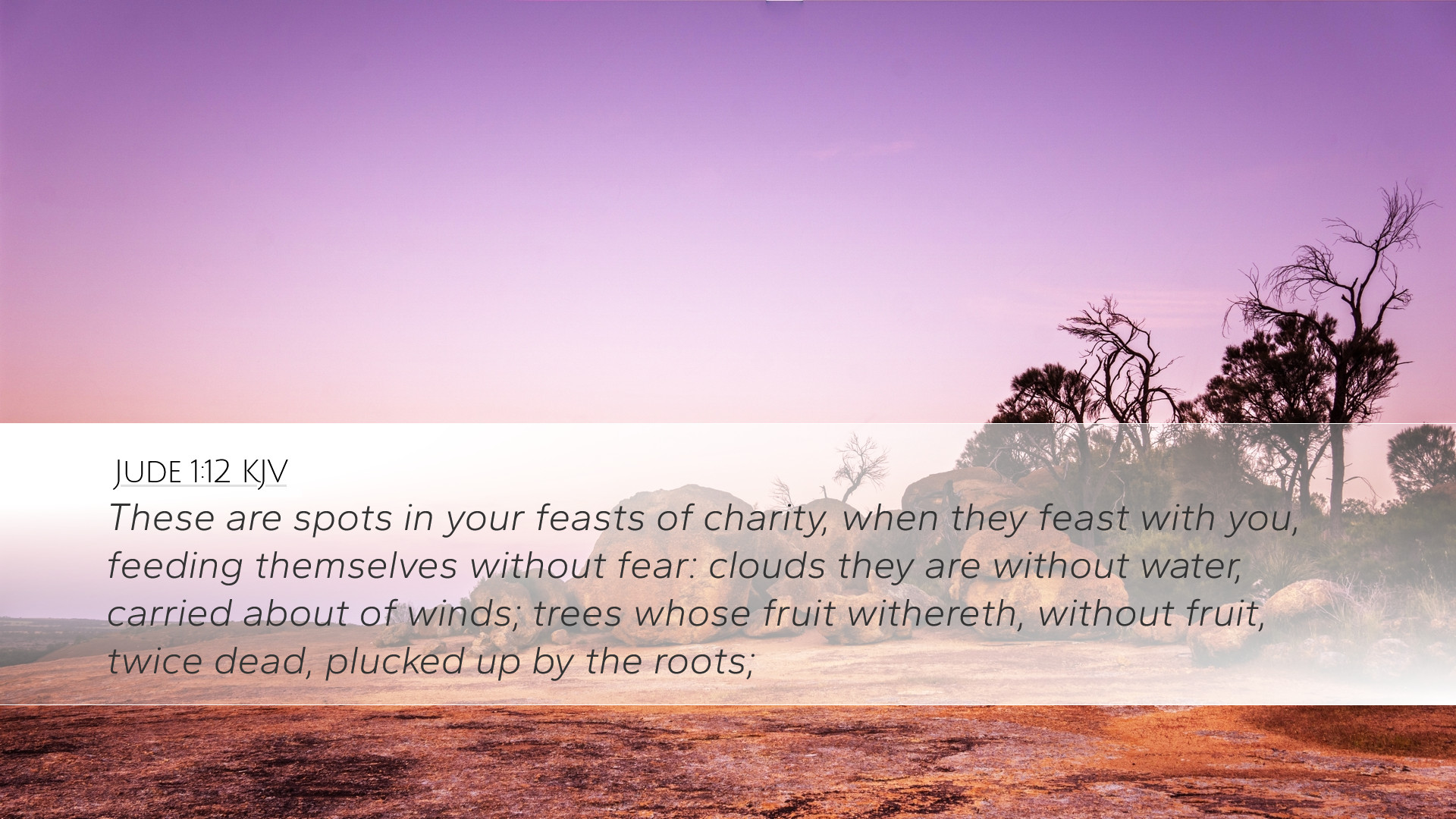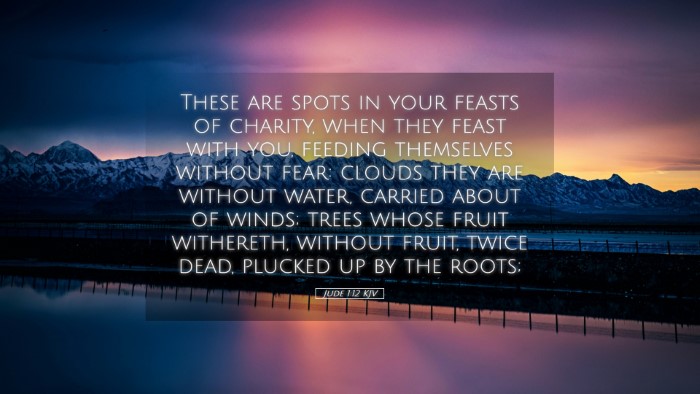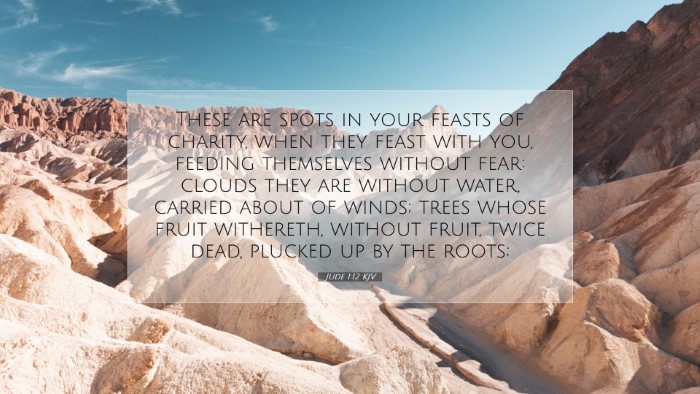Commentary on Jude 1:12
The verse Jude 1:12 presents a stark and vivid picture of certain individuals within the Christian community, described as “clouds without water” and “trees without fruit.” This metaphor communicates profound spiritual truths regarding false teachers and their detrimental impact on the faith community.
Exegesis of Jude 1:12
In Jude’s epistle, he addresses a pressing issue concerning apostasy and the infiltration of false teachers into the church. Jude emphasizes the need for vigilance in maintaining the purity of faith and warns against those who masquerade as believers but lack genuine substance.
Analytical Breakdown
- Clouds without water: This phrase illustrates the emptiness of those who promise spiritual nourishment but deliver nothing of value. They appear capable of satisfying the spiritual thirst of the congregation yet fail to provide real sustenance. Clouds typically signify the promise of rain, held in high regard in agrarian cultures where rainfall is crucial for crop production. This imagery highlights deception in the form of false hope.
- Trees without fruit: Here, Jude likens these individuals to barren trees—an image suggestive of a lack of spiritual vitality. Trees are meant to bear fruit, signifying a life that produces good works and reflects the character of Christ. For believers, the expectation of ongoing spiritual growth and productivity is intrinsic to their identity in Christ.
- Twice dead: This phrase amplifies the judgment upon these false teachers; the term “twice dead” indicates a complete and utter spiritual demise. It indicates not only a previous spiritual death due to sin but a subsequent disqualification from any form of revival or renewal.
- Plucked up by the roots: Jude employs this imagery to suggest total removal and destruction from the community of faith. The metaphor indicates that these individuals are completely cut off from the source of life and nourishment, illustrating the severity of their spiritual condition.
Theological Implications
This passage profoundly impacts our understanding of spiritual leadership and accountability within the church. It serves as a reminder of the seriousness of spiritual birthright and the necessity for discernment within Christian communities.
Lessons for the Church
- Discernment: Believers are urged to be discerning regarding the teachings they accept and the influences they allow within their communities. The characteristics of false teachers are stark, calling on leaders and members alike to be vigilant.
- Spiritual Accountability: The metaphor of barrenness confronts the church with its responsibility for spiritual fruitfulness. Every member is charged with cultivating a life that reflects Christ’s character and teachings.
- Consequences of Apostasy: Jude's warning indicates that there are severe spiritual consequences for those who lead others astray. This serves as a sobering reminder for pastors and leaders to be grounded in biblical truth, apprehensive of their significant influence over the flock.
Insights from Public Domain Commentaries
A combination of insights from Matthew Henry, Albert Barnes, and Adam Clarke provides deeper understanding of Jude 1:12:
Matthew Henry's Commentary
Henry emphasizes the detrimental nature of false teachers, urging believers to recognize their unfruitfulness and deception. He points out that these figures appear promising yet are devoid of the life-giving elements found in the true gospel. Henry's concern for the integrity of the church rings true as he pushes for a return to scriptural foundations.
Albert Barnes' Commentary
Barnes elaborates on the imagery used by Jude, particularly focusing on the disappointment that comes when one expects nourishment from a source that yields none. He highlights the necessity for vigilance and urges believers to remain focused on the authentic expressions of faith that produce genuine spiritual fruit. His insights underline the historical context of the early church, which faced numerous infiltrations from false ideologies.
Adam Clarke's Commentary
Clarke offers a detailed explanation of the Christian principles evident in these metaphors. He insists that the church should pursue authentic spiritual growth and avoid the allure of empty promises offered by false teachers. He unpacks the implications of being “twice dead,” addressing the severity of turning away from Christ, emphasizing that the church’s vitality relies on adhering to sound doctrine.
Conclusion
Jude 1:12 serves as a compelling warning and a call to rigorous spiritual integrity. By equipping ourselves with discernment, we can ensure that our churches flourish under sound teaching and genuine faith. Through the insights gleaned from Jude's epistle and the commentaries of respected theologians, we understand the gravity of our spiritual responsibilities and the call to remain within the fold of truth.


